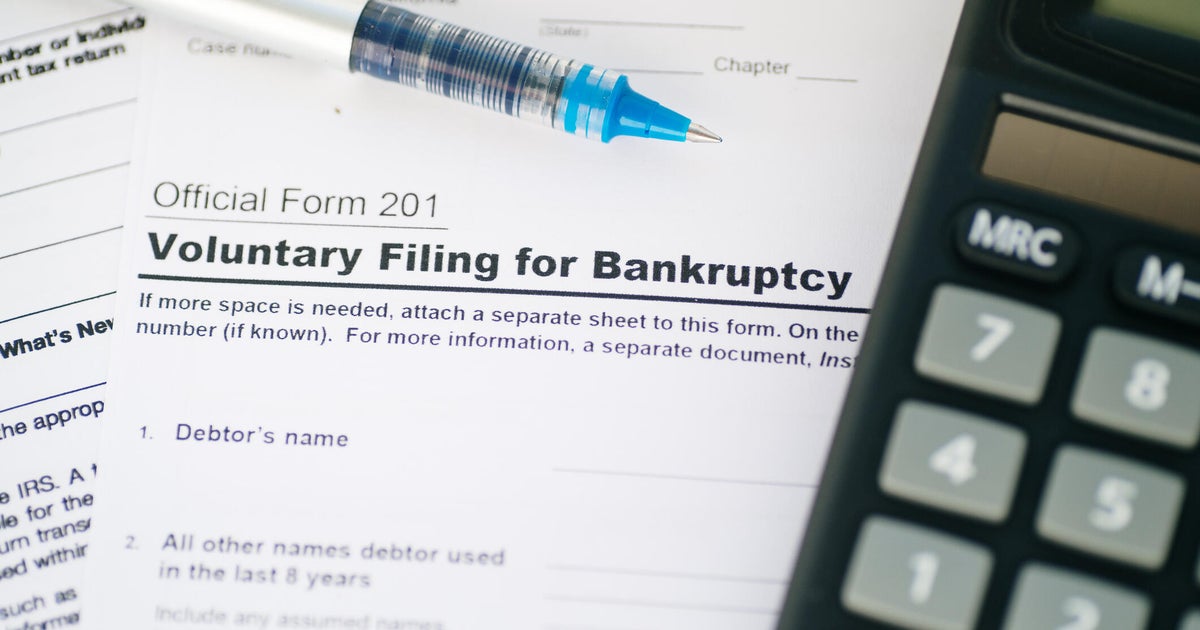Greenpeace sues Walmart, claiming it lies about plastic being recyclable
It happens many times a day, in kitchens, stores and offices across America: the argument about whether or not a particular plastic package can go into the recycling bin.
"I have this argument with my husband," said Mary Wood, a law professor who runs the Environmental and Natural Resources Law Center at the University of Oregon. "Every time he shops, he'll buy milk in plastic jugs. I'll say, 'No, it's not recyclable,' and he points to the recycling symbol and says, 'Look, it is!'"
It turns out that most of that plastic, even if it has a "recyclable" label on it, is landfilled, burned or makes its way into the oceans. Just a small fraction of the stuff has ever been recycled. The vast majority of recycling facilities in the U.S. can only accept two types of plastic, a Greenpeace report found last year, but even they can only process a small fraction of the plastic waste that's created every year.
Now, Greenpeace is going after Walmart, saying America's biggest retailer is misleading shoppers about its plastic products being recyclable instead of trying to sell less of the stuff.
In a lawsuit filed last week in California state court, Greenpeace eviscerates a variety of plastic items sold under Walmart's private labels. These items, which range from applesauce containers to fruit cups to plastic cups and cutlery, "are advertised, marketed and sold as recyclable," the lawsuit says, but most recycling facilities don't accept or can't process these items and there are no markets to reuse them, according to the suit. This mislabeling of products breaks California laws regarding false advertising and environmental marketing, Greenpeace contends.
"Walmart is the 100-pound gorilla when it comes to global retailers," said John Hocevar, who leads Greenpeace's oceans campaign. "Walmart's plastic footprint, for their own brand products alone, is about a million tons a year."
Hocevar added: "Walmart is fully aware that a lot of their customers are concerned about plastic, especially single-use plastic. So far, instead of working to reduce their plastic footprint in a significant way, they are greenwashing."
A Walmart spokesperson said the company "is a strong advocate for the environment" and that its labeling follows the law.
"We previously reviewed these allegations and explained to Greenpeace that the product labeling complies with federal and state laws. Like many other retailers, we rely on labeling developed and validated by our suppliers and sustainability partners, including How2Recycle. We deny Greenpeace's allegations and intend to defend the company," the Walmart spokesperson, Randy Hargrove, said in an emailed statement.
Hargrove also noted that Walmart plans to make all its in-house packaging "reusable, compostable and recyclable" in four years, but did not reveal how far along the company is toward meeting that goal.
"Recyclable" in name only
Recycling in the U.S. reached a crisis point in recent years — even before the economic fallout from the coronavirus led many cities and states to cut back on sustainability programs.
A recently published study in the journal Science Advances found that less than one-tenth of all the plastic ever produced by humans has been recycled.
After China, once a major destination for U.S. plastics, stopped accepting imports of most recyclables two years ago, many U.S. cities discontinued or cut back their recycling programs. Some continued to collect previously recyclable plastic but incinerated it, as a Guardian investigation found last year.
An examination of U.S. recycling facilities, which Greenpeace and the nonprofit Last Beach Cleanup released earlier this year, found that only some bottles and jugs made from plastics labeled Nos. 1 or 2 could fairly be called "recyclable."
The rest, a group called "mixed plastics" that includes items such as plastic cutlery, cups, stirrers and coffee-cup lids; plastic clamshells typically used to package produce; and Styrofoam packaging, can only be accepted at a handful of recycling-processing plants nationwide. Out of the 367 plants in the U.S. that sort materials for recycling, only two accept plastic cutlery, only four can process plastic plates and none accept single-serve coffee pods.
Even the most widely recyclable plastics, Nos. 1 and 2, are actually only recycled part of the time, Greenpeace found. That's because U.S. processing plants "cannot process the sheer volume of single-use plastic that is submitted to recycling facilities on an annual basis," the group says in its lawsuit. "The labor and cost required to sort, melt and reconstitute the approximately 33 million tons of single-use plastic produced in the United States every year is insurmountable."
Most "recyclable" claims unchallenged
A handful of lawsuits in recent years have challenged companies' environmental claims, but the tactic remains rare.
Earlier this year, the nonprofit Earth Island Institute sued 10 of the largest consumer-goods companies, seeking to hold them responsible for plastic waste.
In 2018, a group of consumers sued Keurig, claiming the coffee company lied about its single-serve "green" plastic coffee pods being recyclable, due to their small size. The suit is being moved into private arbitration.
California prosecutors have also sued Walmart, Amazon and Costco over the labeling of products as "biodegradable;" all three cases settled.
Greenpeace's suit "would be a game changer if it progresses," said environmental law professor Wood of the University of Oregon. "Even though it challenges just one company … it could set a precedent that would send ripples throughout the entire corporate world.
"Traditionally we've relied on a slew of government agencies to regulate corporate conduct," Wood said. "And that has failed. It's failed, because we wouldn't be in this environmental crisis if it had worked."



